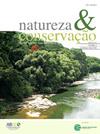指导社会生态政策决策的跨学科综合过程
IF 3.5
2区 环境科学与生态学
Q1 BIODIVERSITY CONSERVATION
引用次数: 0
摘要
跨学科综合研究在扩大学术知识方面取得了重大进展。然而,它的应用,以解决社会生态问题提出了挑战,典型的跨学科研究和合作生产倡议。根据巴西综合中心致力于共同制定社会生态公共政策的七个工作组的经验,我们提出了加强跨学科综合的八项经验。这些综合需要工作组动态的灵活性,以促进协作工作,在容易到达的地点举行频繁而短暂的会议(1)。它们还需要根据需求的紧迫性、数据和知识的可用性,灵活地塑造不同的轨迹(2)。还需要灵活性来适应政治环境,承认在应对紧迫的政治需求和创造新颖的想法之间存在权衡。知识和产出(3)。此外,建立正式制度,特别是在科学-政策界面上的正式参与(4)和创建传播非学术产出的正式平台(5)是刺激决策者和科学家参与合作跨学科综合的关键。双向科学-政策联系中的对称、水平互动(6),以及连接不同知识、技能和权威的集体反思(7),对于使学术知识与政策实践保持一致至关重要。具有科学研究和决策技能的个人作为知识经纪人积极参与,进一步加强了这种一致性。最后,注重创造积极的互动和透明的沟通有助于在参与者之间建立信任(8)。这些调整可以增强跨学科综合的潜力,从而在科学-政策界面产生可操作的知识。本文章由计算机程序翻译,如有差异,请以英文原文为准。

Guiding transdisciplinary synthesis processes for social-ecological policy decisions
Interdisciplinary synthesis research has been promoting significant advances in expanding academic knowledge. However, its application to address social-ecological problems poses challenges, typical of transdisciplinary research and co-production initiatives. Based on the experience of seven working groups from a Brazilian synthesis nucleus dedicated to co-producing social-ecological public policies, we present eight learnings to strengthen transdisciplinary syntheses. Those syntheses require flexibility in the working group dynamics to facilitate collaborative work, with frequent and short meetings held in easily accessible locations (1). They also require flexibility to shape different trajectories, depending on demand urgency, data and knowledge availability (2). Flexibility is also required to adjust to political circumstances, acknowledging that there are trade-offs between responding to urgent political needs and creating novel ideas, knowledge and outputs (3). In addition, the creation of formal institutions, particularly, formal engagement at the science-policy interface (4) and creating formal platforms for disseminating non-academic outputs (5) are key to stimulate the involvement of policy-makers and scientists in collaborative transdisciplinary syntheses. Symmetrical, horizontal interactions within a two-way science-policy linkage (6), alongside collective reflexivity on bridging diverse knowledge, skills, and authorities (7) are crucial for aligning academic knowledge with policy practices. Active involvement of individuals skilled in both scientific research and policy-making, who act as knowledge brokers, further strengthens this alignment. Finally, attention to create positive interactions and transparently communicating help to build trust among participants (8). These adjustments can enhance the potential of transdisciplinary syntheses to generate actionable knowledge at the science-policy interface.
求助全文
通过发布文献求助,成功后即可免费获取论文全文。
去求助
来源期刊

Perspectives in Ecology and Conservation
Environmental Science-Nature and Landscape Conservation
CiteScore
7.80
自引率
4.30%
发文量
46
审稿时长
59 days
期刊介绍:
Perspectives in Ecology and Conservation (PECON) is a scientific journal devoted to improving theoretical and conceptual aspects of conservation science. It has the main purpose of communicating new research and advances to different actors of society, including researchers, conservationists, practitioners, and policymakers. Perspectives in Ecology and Conservation publishes original papers on biodiversity conservation and restoration, on the main drivers affecting native ecosystems, and on nature’s benefits to people and human wellbeing. This scope includes studies on biodiversity patterns, the effects of habitat loss, fragmentation, biological invasion and climate change on biodiversity, conservation genetics, spatial conservation planning, ecosystem management, ecosystem services, sustainability and resilience of socio-ecological systems, conservation policy, among others.
 求助内容:
求助内容: 应助结果提醒方式:
应助结果提醒方式:


